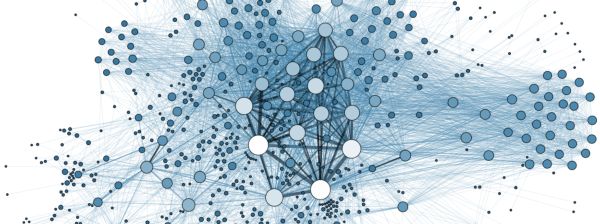Speed kills

When Evan Williams created Blogger and triggered the social media revolution of push-button publishing, an unquestioned presupposition underpinning the creation of the platform was that there was inherent value in reducing the temporal distance between authorship and publication.
Supposedly, if anyone, anywhere, could broadcast their words to the world without any barriers standing in the way, this would represent the greatest leap forward in communication since Gutenberg.
That turns out to have been a false presupposition for several reasons.
What from one perspective might look like communication barriers, turn out more often to function as de facto forms of quality control.
Back in the 1400s, when Johannes Gutenberg created movable type, he opened the door to mass communication in a way that the handwritten manuscript would never allow, but this still involved filtered access. The time, effort, and cost required in typesetting and printing necessitated the application of some notion of what was worthy for print and what text might retain its value as durably as its binding.
Social media has not only removed the barriers to mass communication; just as significantly, it has removed or corroded many of the internal filters that would otherwise inhibit the public expression of private experiences. At the same time as expanding the spheres of communication, it has helped dump into those spheres a landfill of babble and vitriol.
Social media has fueled a contagious desire for being heard and seen, creating a rush onto a public stage where presence takes on more importance than performance.
Worst of all, the pathological effect of narrowing the gap between thought and expression is that belief, through its effortless immediacy, is erasing the willingness to engage in the quiet and sometimes arduous work of reflection.
Arguably, people have always found it easier to believe than to think. What is new, is that communities of opinion are now emerging in which incoherent amalgams of beliefs can be bound together and sustained in echo chambers that give succor to feeble minds oblivious to the mishmash.
In the strange terrain of social media it’s possible to believe in a flat earth and climate change; to marvel at DNA while rejecting evolution; and to construct the perverse ideology of an “anti-imperialist eco-fascist.”
Thus out of the swamps of online bigotry there emerges with increasing frequency the likes of Brenton Tarrant, the Christchurch gunman.
Today, the social media giants are once again in damage control, issuing statements about doing everything in their power to prevent the promotion of hatred even when acts of violence have been conceived and carried out as social media events.
At this point, Facebook, Twitter, and YouTube are sounding increasingly like Philip Morris and R.J. Reynolds — purveyors of products that their makers insist don’t harm most users. How many massacres will be too many?
In the libertarian world of social media, freedom is another name for lack of accountability. From boardrooms down to individual users, there is a deficit of social responsibility — corporate responsibility and personal responsibility.
The reluctance of the social media corporations to confront the monster they have created hinges on a single fact: any measure that diminishes the volume and speed of online interactions will diminish advertising revenue.
Social media capitalizes on maximizing the reactivity of its users.
But suppose that the pursuit of profit was not the sole guiding principle in the operations of Facebook et al. There is one very simple technical measure that would serve these platforms well (and also could have applications in other digital environments, such as automated stock market trading): continuous forced delays.
Instead of insisting that speed has inherent value, we need to recognize that there are countless situations where there is greater value in having to wait.
Having to wait, opens a space for second thoughts and second thoughts often have more depth than their impulsive precursors.
Suppose that each time you hit share/tweet/send/publish, you then had to wait 60 seconds for anything to happen.
Which of these online communications is actually so urgent that it cannot bear the strain of behind withheld just for a minute?
Wait a minute is a well-worn phrase for good reason: it encapsulates a timeless truth. Life needs to be punctuated with pauses.
Were we all forced to wait a minute and during that interval have the opportunity to retract our own words, how much venom, bile, and vacuous chatter might be aborted before it got inflicted on friends and strangers through social media?
The times online when we must speak now or forever hold our peace are almost non-existent. (With the rare exceptions where seconds do count – like sharing a tsunami warning – a temporary technical override on the one-minute delay wouldn’t be difficult to implement.)
If everyone’s speech was being tethered in the same way, no one would be disadvantaged.
The cultural ramifications for this paradigm shift in the way we are conditioned to value time — recognizing that in so many ways, slower can be better than faster — could (there’s a small chance) begin to break the spell of technical innovation.
For so long, commerce has insisted that speed improves, extends, and expands life, even while experience consistently points in the opposite direction.
Slowing down may be the only way we can start to reclaim life and no longer remain enslaved to fictitious technological imperatives.